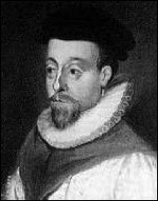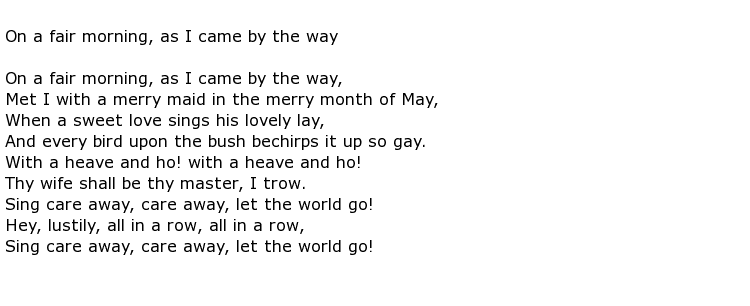 Thomas Morley was an English 16th century lyric poet and composer who was a leading figure in the Madrigal movement of music composition. He was around right up to the end of the Renaissance period which encompassed the whole of Europe for about two hundred years up to the year 1600. His passion for music also gave him a deep interest in the theory and performance of the art and he was both a singer and accomplished organist.
Thomas Morley was an English 16th century lyric poet and composer who was a leading figure in the Madrigal movement of music composition. He was around right up to the end of the Renaissance period which encompassed the whole of Europe for about two hundred years up to the year 1600. His passion for music also gave him a deep interest in the theory and performance of the art and he was both a singer and accomplished organist.
His birth date cannot be confirmed but it is believed that the year of his birth was either 1557 or 1558. He originated from the city of Norwich in Norfolk, the son of a brewer. Norwich has a fine cathedral and it is believed that he began his singing career in the choir before becoming master of choristers in 1583. Before that though he lived in London for a while and sang in the choir at St Paul’s Cathedral during the year 1574. He managed to make some kind of a living from his singing talents while studying music under a famous Renaissance composer by the name of William Byrd.
He achieved a Bachelor’s degree from Oxford in 1588 and this led to his appointment as organist at St Paul’s. He was very much involved in music publishing around this time and he produced a theoretical guide to music in 1597 called A Plain and Easie Introduction to Practicall Musicke. It is believed that Morley was one of those responsible for the merging of English and Italian styles that led to the tradition of English Madrigals and he produced at least eleven of his own. This period has been described as “…one of the most colourful episodes in the history of English music”.
Morley was in London at the same time as William Shakespeare and historians have often speculated that the two may have collaborated at some point. This was certainly a great period for playwrights and composers of music and the two art forms often combined. It cannot be proved beyond all doubt but it is believed that, in conjunction with another writer called Robert Johnson, he provided some of the music that Shakespeare included in his plays. Morley most certainly consorted with many involved in the London theatre as well as fellow musicians.
Not many of his poems are known but, of those that did survive, there is certainly a lyrical, jaunty theme to them. Here is a typical example

Undoubtedly though, Morley’s most significant work was in the production of sacred music and madrigals but he made a point of making them light and relatively easy to sing. This is probably why he was such a popular composer. Others, such as John Wilbye and Thomas Weelkes wrote their madrigals in a much more sombre fashion.
Morley’s talents as a composer of music were best illustrated by the fact that his Plaine and Easie publication was popular for at least two hundred years after it was written and, in fact, musical historians still refer to it today when researching 16th century styles of performance and composition.
Thomas Morley died during the early part of October, 1602. His age would have been around 44 or 45.

